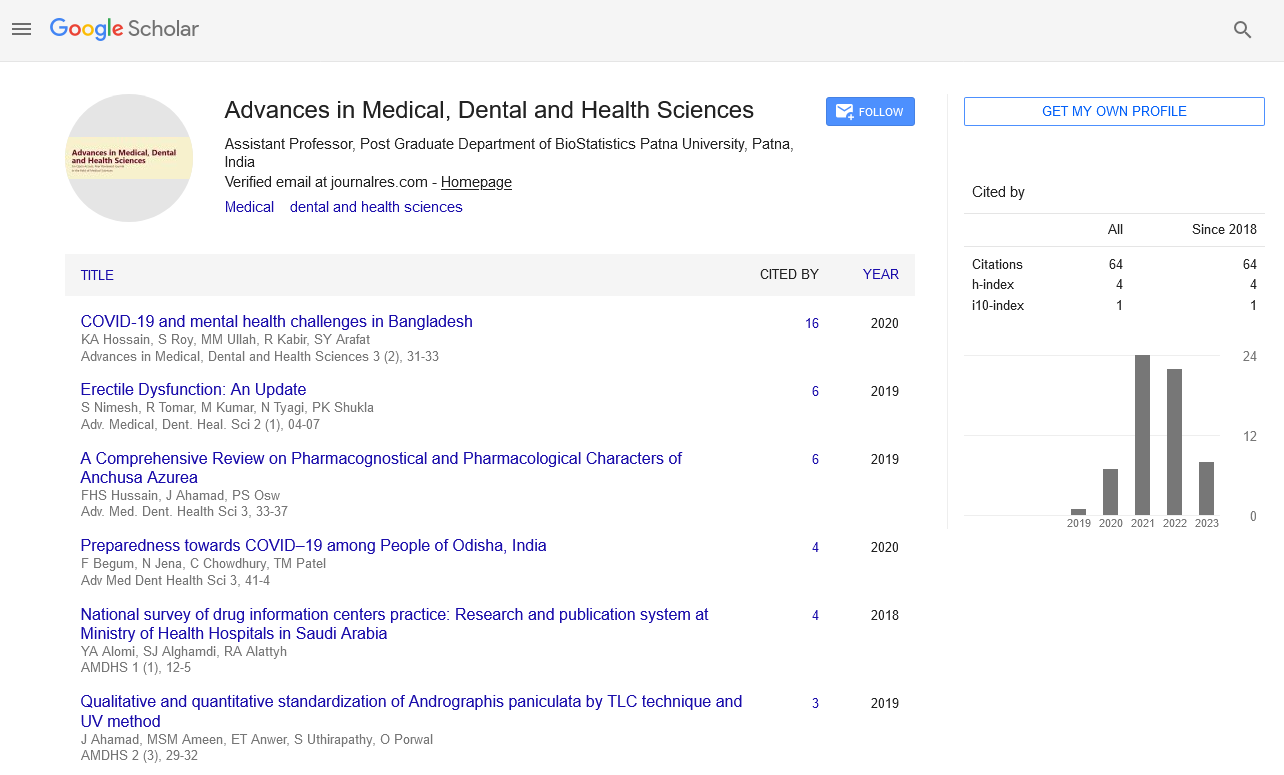Techniques For Fertility Preservation In Patients With Breast Cancer - A Current Approach
Abstract
Author(s): Mariam Faruqui Shati*, Bipasha Ahmed, Md. Khorshed Alam, Ashikur Rahaman, Angel Tincy Abraham and Swati Sharma
Introduction: The currently available methods of fertility preservation for patients with breast cancer include cryopreservation of embryos, oocytes, and ovarian tissue and GnRH agonist treatment during chemotherapy. As the number of women who wish to become pregnant after being diagnosed with breast cancer increases, it is necessary to consider fertility preservation in these patients. However, medical doctors may be unaware of the importance of fertility preservation among cancer patients because most patients do not share their concerns about fertility with their doctors.
Objective: To assess the techniques for fertility preservation in patients with breast cancer-a current approach.
Materials and Methods: We performed a retrospective chart review of the cases of the 275 patients < 45 years old at the time of their breast cancer diagnosis at our institution during the period from January 2017 to December 2021 in Fertility Centre, Labaid Specialized Hospital, Dhaka, Bangladesh. Seventeen (6%) of the 275 patients decided to preserve their fertility before starting adjuvant systemic therapy. The collected data included patient age at the time of diagnosis, pathological diagnosis, the number of children the patient had at the time of diagnosis, tumor histology, nuclear grade, hormone receptor and human epidermal growth factor 2 (HER2) status, Ki-67 positivity, cancer stage, treatment regimens and duration, fertility preservation methods, number of successful pregnancies, and breast cancer recurrence. All data were retrospectively extracted from our institution’s electronic medical records system.
Results: 66 (24%) patients were single, 183 (66%) were married, and 26 (9%) were divorced. Of the 183 married patients, 24 (13%) had one or more children and 159 (87%) had none. All 26 divorced patients had one or more children. 72 (32%) patients received fertility counseling from the multidisciplinary team. Of the 72 patients given fertility counseling, 34 (47%) were single, 35 (49%) were married, and 3 (13%) were divorced. Of the 35 married patients who underwent fertility counseling, 13 (37%) already had one or more children and 22 (63%) were childless. 6 (35%) patients underwent oocyte cryopreservation, and 11 (65%) married patients opted for embryo cryopreservation. There were no pregnancies among the patients undergoing oocyte cryopreservation, whereas 3 (27%) of the patients who opted for embryo cryopreservation became pregnant. 2 (12%) patients stopped endocrine therapy after 2 years in an effort to become pregnant, but their breast cancers recurred.
Conclusion: Our present study focused on the importance of discussing fertility preservation with breast cancer patients. Patients with malignant diseases other than breast cancer such as leukemia, lymphoma, skin cancer, ovarian cancer, and sarcoma who may be treated by chemo- therapy, surgery or radiation therapy should also be considered. Though the problem of fertility loss for breast cancer patients is important and we should assess the infertility risk for all patients, we should also consider the prognosis.
https://betsatgirisi.com https://bettilte.com https://vegabete.com https://kanyongiris.com https://matgiris.com https://celtabetegiris.com https://hilbetegiris.com https://melbete.com https://kinbettinge.com https://wipbett.com https://pusulabetegiris.com https://superbahiss.com https://lidyagiris.com https://holiganbete.com https://1xbetgiriss.com https://asyabahise.com https://jetbahise.com https://betdoksana.com https://betebetle.com https://betgramagiris.com
